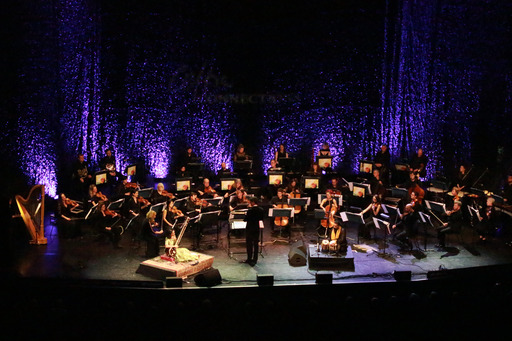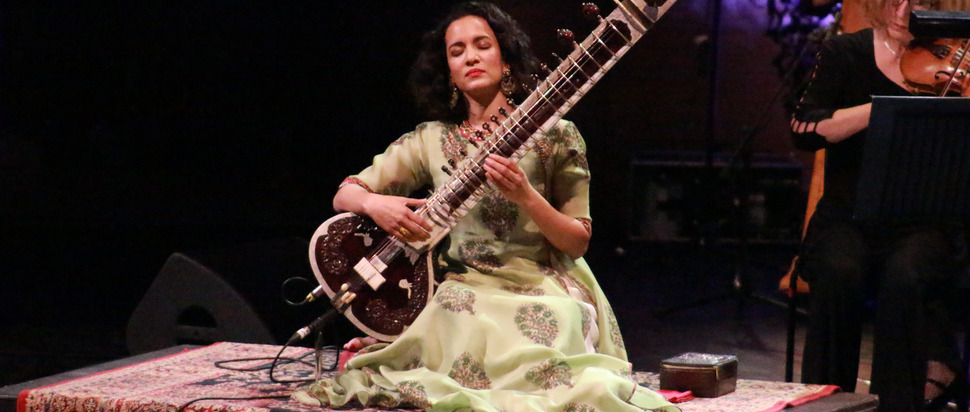Anoushka Shankar @ Glasgow Royal Concert Hall, 28 Jan
With a focus tonight on cultural fusion, Anoushka Shankar, Orchestral Qawwali Project and the Scottish Chamber Orchestra mesmerise a Glasgow crowd
After such a lengthy recess, it’s not necessarily a given that performers will return to public life smoothly polished. But tonight's Celtic Connections gig at the Glasgow Royal Concert Hall betrays no sign of this prolonged absence, as Anoushka Shankar revisits her father Ravi Shankar’s Concerto No. 3 for Sitar and Orchestra.
The concert’s first half features the Orchestral Qawwali Project, who fuse Qawwāli (a form of devotional singing in the Sufi Islamic tradition that originated in 13th century India) with the classical structures and chord progressions of western music. Where traditional Qawwāli was intended to put the listener into a trancelike state, the effect here is one of active emotion, conveying the devotion and love felt in the words even to those who can’t understand them.
The Hollywood strings arranged by composer Rushil are a far cry from the traditional accompaniment to Qawwāli – that is to say, nothing, since Qawwāli was historically performed without instruments. Neither was it traditionally performed by women, which makes lead vocalist Abi Sampa’s performance (already powerful to the point of being physically soothing) all the more remarkable. It’s apt that Rushil chooses the end of the uplifting Man Kunto Maula to reveal to the audience that Sampa is the UK’s first female Qawwāl. “It has been the honour of my life to write music for her to sing over,” he tells us.
In spite of the differences in the musical cultures at play, the finished result is solid and cohesive. Sampa’s singing, and that of the backing chorus led by tabla player Amrit Singh, merges seamlessly with the orchestral accompaniment provided by the Scottish Chamber Orchestra, rendering a first-time listener astonished to learn that they are not hearing the pieces in their natal form.

Image: Anoushka Shankar and the Scottish Chamber Orchestra by Samantha Barr
Both halves represent cultural fusion of sorts, but while pre-intermission we see one act as the backdrop for the other, once Anoushka Shankar takes to the stage the focus is on adapting tone and style in order for the two musical traditions to sit side by side. Their seats may have remained static, but the orchestra find themselves back in centre stage in this half, and waste no time in revelling in the attention.
In the string and woodwind solos you can hear how the players have learnt stylistically from the sitar, altering their articulation in order to get closer to its distinct sound. Some of this is pre-written into the score, like the glissando slides in unison with the sitar, but it’s nonetheless a challenge readily met by the SCO, conducted by Clark Mundell.
The second half begins and ends with beautiful pieces from Shankar’s solo career, with Concerto No.3 sandwiched in the middle. Her playing leaves the audience mesmerised throughout, but never more so than in the concerto’s third movement which demands a level of virtuosity from the soloist. It might have been more fitting to rearrange the running order, closing at the movement’s triumphant conclusion, but on a night so focused on cultural fusion there’s not much point in stiffly holding onto notions of whether or not encores have a place at orchestral performances.
